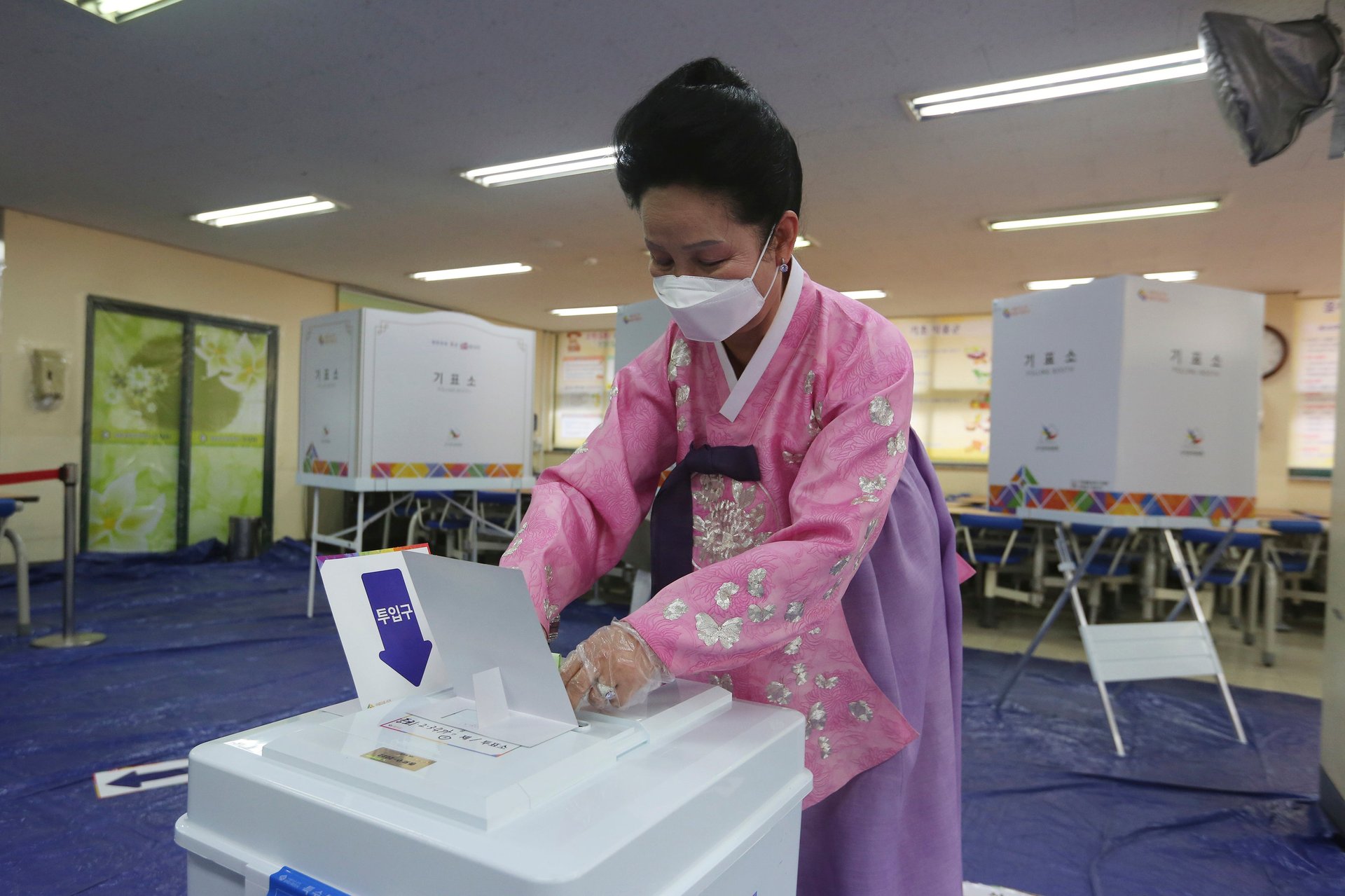In the middle of the coronavirus pandemic, 66% of South Koreans turned out to vote
The coronavirus pandemic has thrown challenges of all kinds for elections around the world: US Democratic primaries have been postponed, England’s local elections were pushed back by a year, Ethiopia’s national election got delayed, and legal scrambles are in motion over whether extensions should be given for mail-in ballots.


The coronavirus pandemic has thrown challenges of all kinds for elections around the world: US Democratic primaries have been postponed, England’s local elections were pushed back by a year, Ethiopia’s national election got delayed, and legal scrambles are in motion over whether extensions should be given for mail-in ballots.
But amid it all, South Korea has managed to push ahead, on schedule, with the world’s first pandemic-era nationwide elections—albeit with strict social-distancing rules and other public health precautions. And not only did today’s parliamentary election go smoothly, but a high number of voters turned out to cast their ballots.
With polls having closed at 6pm local time, the country’s national election commission reported a turnout rate of 66% (link in Korean), out of a total of 44 million eligible voters. It blew past the 2016 national election’s rate of 58%, and marked the first time since 2004 that a general election posted a turnout rate above 60%. A two-day period of early voting last Friday and Saturday also helped to boost turnout numbers.
In addition to regular disinfection of polling stations across the country and temperature checks at entrances, voters were given hand sanitizers and plastic gloves and told to line up at least a meter away from each other. At a polling station in the city of Jecheon, two voters who recorded temperatures higher than 38°C (100.4°F) were directed to a special polling booth to avoid contact with others, and were advised to visit a nearby health center, according to local media reports. And for those under quarantine or who have been hospitalized due to the coronavirus, arrangements were made well in advance to allow them to cast their vote from home or place of treatment.
The sense of crisis no doubt spurred many voters to head to the polling stations, while one leading politician of the ruling party told citizens their vote was “the most powerful weapon in the war against the coronavirus.” Exit polls suggest the ruling Democratic Party is on course for a comfortable win. Thae Yong-ho, a North Korean defector and Pyongyang’s former deputy ambassador to the UK, is projected to win a seat.
South Korea’s ability to hold today’s elections, in which 300 seats of the National Assembly were up for grabs, provides other countries with a successful example of how to balance the twin obligations of public health and civil liberties. Though a cluster of Covid-19 cases linked to a religious sect grew rapidly in February, leading to worries that the outbreak could spread uncontrollably, the country managed to flatten its epidemic curve relatively quickly without resorting to wide-scale lockdowns, instead implementing a coordinated regimen of stringent testing, contact tracing, isolation, and social distancing.
The number of newly confirmed Covid-19 cases in Korea has fallen to below 30 a day for the last three days, another drop from around 50 or fewer daily cases recorded consecutively last week. And the country is marshalling a range of technologies as it continues to tweak its strategy in a bid to stay ahead of the curve and prevent a resurgence of cases. For example, its intensive contact tracing is powered by a vast database that draws on information from the police, CCTV footage, and even credit card transactions.